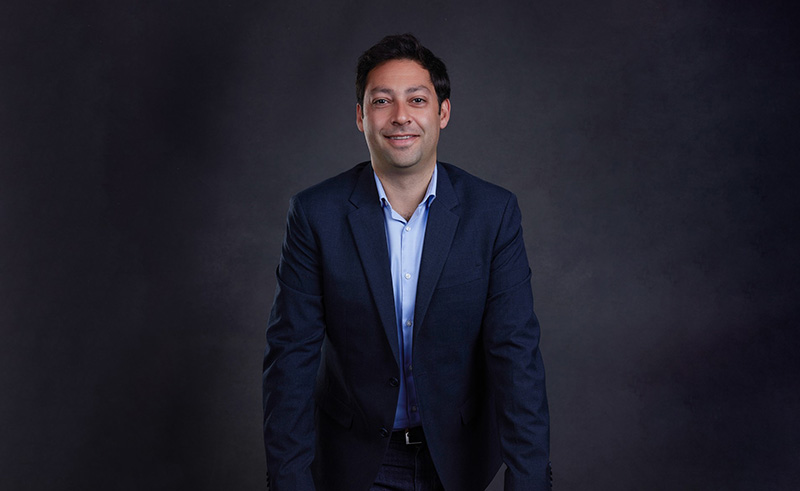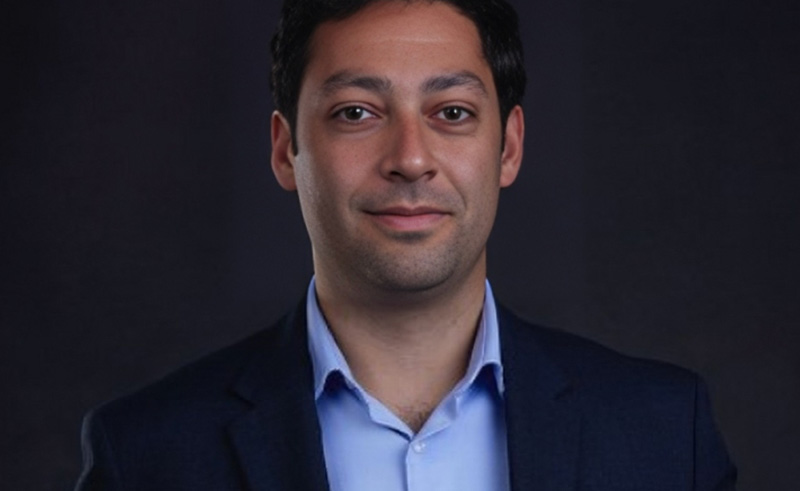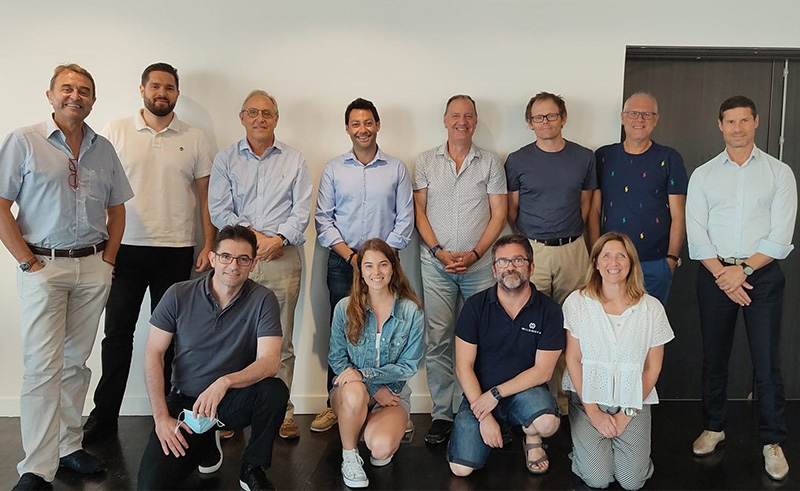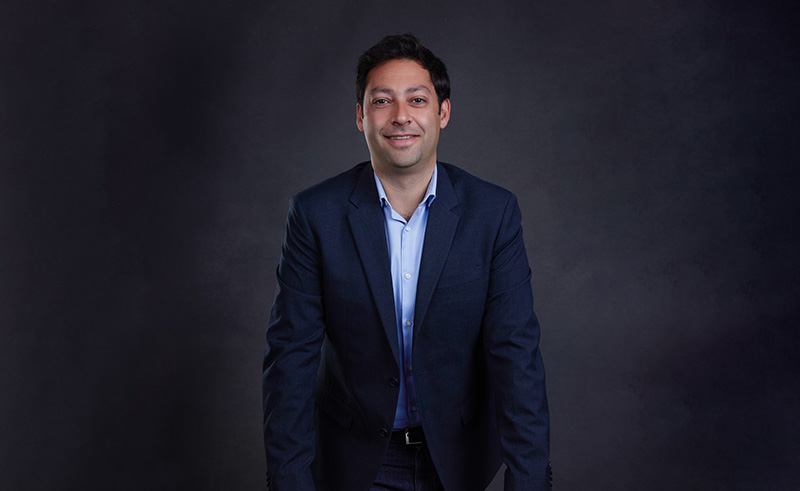Fundbot: The UAE Startup Providing Corporate Lending Solutions in MENA
The startup seeks to resolve delayed payments in the region, which add up to a regional cash flow gap of $250 billion.

With cash flow management being integral to the success of most businesses, UAE-based startup Fundbot wanted to provide effective solutions to streamline finances for SMEs in the Middle East. Founded in 2020 by Karl Abou Zeid, the startup automates corporate lending and payments between banks, fintech providers and B2B marketplaces to provide SMEs with the opportunity to receive payments instantly.
A serial entrepreneur, Abou Zeid first came up with the idea for his startup after realizing that most SMEs suffered from delayed payments in the region. According to Abou Zeid, the region is home to 19 million SMEs, three quarters of which are suffering from delayed payments, amounting to a regional cash flow gap of $250 billion.
“Getting paid is a very large problem in the MENA region, and we realized that we have a big opportunity to offer a technology that streamlines receivables finance,” Abou Zeid tells StartupScene. “So, we developed an infrastructure that facilitates receivables and payables finance, because it’s not only on the receiving end they have a pain point to receive their payments, but also on the paying end, to pay their invoices and extend their payment terms.”
Today, the startup is working with leading banks in Jordan, and is gearing up to expand to Saudi Arabia, the UAE and later to Oman, Bahrain and Egypt to continue providing SMEs across the region with receivable and payment financing.
HOW IT WORKS
 As an infrastructure provider, Fundbot mostly works with banks, financial institutions and fintechs in the Middle East, who then redistribute the technology to their own customers.
As an infrastructure provider, Fundbot mostly works with banks, financial institutions and fintechs in the Middle East, who then redistribute the technology to their own customers.
“So, we sell to the banks, or the parties that already have an existing customer base and that need these receivable finance services,” says Abou Zeid. “The bank then basically distributes this service across multiple technologies, acquiring so many customers through these digital channels, because Fundbot is bridging their capabilities of integrating within these platforms.”
Since launching, the startup has processed thousands of transactions and has partnered with Visa to facilitate payment processes.
While the startup doesn’t get paid per transaction, it generates revenue based on the number of customers using their service offered by the bank or financial institution. “Our go to market is actually banks,” he says. “We don’t talk to their customers, we don’t see them, and we don’t sell to them, but we get paid by the number of end users.”
GETTING STARTED
 Despite successfully partnering with banks as a young startup, Fundbot initially struggled to get its business off the ground.
Despite successfully partnering with banks as a young startup, Fundbot initially struggled to get its business off the ground.
Launched during the pandemic, it had to quickly adapt to new ways of working to kick start its operations, often in a rapidly changing environment. This entailed not only working remotely, but also starting online from scratch. “I think the biggest challenge was basically launching during COVID-19,” says Abou Zeid. “I recruited my entire team in the middle of the pandemic without meeting them even once, only remotely. I worked with my team for one and a half years remotely, and we integrated with our first customer fully remotely. It was definitely challenging managing all of this at a distance.”
But perhaps, starting over again as a second-time entrepreneur took the biggest toll on Abou Zeid. After founding Sqwirl Lab in 2015, a last mile delivery startup in Lebanon, he had to shut it down because of the country’s economic crisis. Although the startup was gearing up for its Series A, it couldn’t access its money in banks, which led to cash flow problems.
“As a second-time founder, I found it difficult to stand up and build a startup again,” Abou Zeid says. “It’s like a scar. Losing a startup that you invested your entire life in, it’s very tough.”
On the flip side, it was this experience that enabled him to avoid common pitfalls that entrepreneurs often make as first-time founders.
PROVING THE STARTUP
 In December 2023, Fundbot successfully raised $1.5 million to kickstart its expansion across the Middle East. At a time when funding is becoming difficult to come by, this fundraise was a major milestone for the startup.
In December 2023, Fundbot successfully raised $1.5 million to kickstart its expansion across the Middle East. At a time when funding is becoming difficult to come by, this fundraise was a major milestone for the startup.
Contrary to previous fundraising experiences, Abou Zeid decided to first get his startup’s finances in order and prove Fundbot’s business concept before reaching out to investors. “We did not go to look for VCs early on, and this is why almost four years after launching, we raised our first round,” he says. “I went on and built our technology, took on debt, and got some angel investors, and then we got our first customers, and worked to become cash flow positive. After we got cash flow positive, I went on to get some VC money to scale.”
It was this trajectory that ultimately led to Fundbot’s successful fundraising experience. “Fundraising is never easy, but a few years ago it was much easier than now, because the region was booming with funding,” he says. “That’s why I decided this time around to allow the startup to reach self-sustainability in terms of cash flow, and have a clear path to profitability before approaching VCs.”
Since securing funding, the startup has been growing the team to scale its services across the Middle East. Abou Zeid hopes to support micro businesses and SMES through his platform, since they typically need quick access to financing. “About 90% of economies are built on SMEs,” he says. “Our small entrepreneurs need micro lending and micro financing, and my ambition is to be able to support this economy by helping them get paid instantly, get cash comfortably, and to be able to grow their business and sustain it at the end of the day.”
- Previous Article Italian-Palestinian Duo No Input Debuts Eponymous Electro EP
- Next Article Travel Across History on Egypt's Most Iconic Bridges
Trending This Week
-
Dec 12, 2025



























